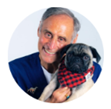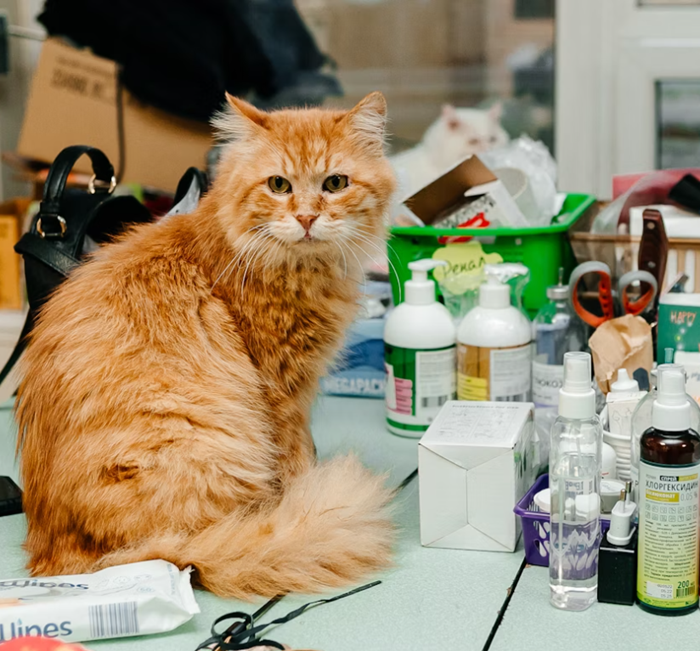When pet parents seek veterinary care, they may notice that some professionals have “DVM” after their names, while others use “VMD.” Both titles represent highly trained veterinarians, but the distinction between the two lies in tradition, not training. Understanding the difference between a VMD (Veterinariae Medicinae Doctoris) and a DVM (Doctor of Veterinary Medicine) can give you deeper insight into your veterinarian’s background and education—and reassure you that your pet is in skilled hands either way.
What Is a DVM?
DVM stands for Doctor of Veterinary Medicine, a degree awarded to graduates of accredited veterinary colleges across the United States and many other countries. Most U.S. veterinary schools, including Colorado State University, University of California–Davis, and Texas A&M, confer the DVM degree. This designation signifies that the graduate has completed rigorous coursework and clinical training in veterinary science, passed licensing exams, and is qualified to diagnose, treat, and prevent diseases in animals.
DVM programs typically take four years to complete after a bachelor’s degree. The curriculum includes anatomy, physiology, pharmacology, surgery, radiology, pathology, and hands-on clinical experience. Upon graduation, students must pass the North American Veterinary Licensing Examination (NAVLE) to legally practice in the United States.
What Is a VMD?
VMD stands for Veterinariae Medicinae Doctoris, Latin for “Doctor of Veterinary Medicine.” This degree is exclusively awarded by the University of Pennsylvania School of Veterinary Medicine (Penn Vet). Penn Vet, founded in 1884, chose to use the Latin form of the degree title in keeping with the tradition of its parent institution, the University of Pennsylvania, which issues degrees in Latin.
Despite the different abbreviation, the VMD is equivalent in every way to the DVM. The educational requirements, clinical training, and licensing standards are identical. VMD graduates also take the NAVLE and must meet the same criteria for state licensure and continuing education.
Why the Different Titles?
The only reason for the two different titles is institutional tradition. The University of Pennsylvania, like many Ivy League schools, retains Latin terminology for its degree titles. So, while a graduate from Penn Vet earns a VMD, their training is on par with any DVM from another accredited institution.
This naming distinction is similar to how some medical doctors earn an MD (Doctor of Medicine) while others earn a DO (Doctor of Osteopathy). Both are fully qualified physicians, just trained through slightly different academic philosophies or institutions.
Do VMDs and DVMs Practice Differently?
No, VMDs and DVMs do not differ in the way they practice veterinary medicine. Both go through similar training and are subject to the same licensing and ethical standards. Whether your veterinarian is a DVM or a VMD, they are fully capable of providing comprehensive medical, surgical, and preventive care for your pet.
 In fact, unless you ask, most pet parents won’t even notice the distinction. What matters far more is a veterinarian’s experience, communication skills, specialty training, and ability to connect with both pets and their families.
In fact, unless you ask, most pet parents won’t even notice the distinction. What matters far more is a veterinarian’s experience, communication skills, specialty training, and ability to connect with both pets and their families.
Which Should I Choose for My Pet?
There is no inherent advantage in choosing a VMD over a DVM, or vice versa. The quality of veterinary care is determined by many factors, including:
-
Clinical experience
-
Continuing education
-
Special certifications (such as board certification in internal medicine, surgery, or oncology)
-
Communication style and rapport with pet parents
-
The quality of the clinic or hospital where they practice
It’s more important to look at a veterinarian’s overall qualifications and bedside manner than whether their degree says DVM or VMD. Both are equally valid and respected in the veterinary community.

Are you finding article useful? Would you like 100% free access to more articles like these, and free access to over 5,000 vetted pet care service professionals throughout the United States? Sign up here for a free Petworks account, and we’ll email you a personal 10% discount code. Then take 10% off your first booking on us!
Notable VMDs
Since only Penn Vet confers the VMD degree, all VMDs are alumni of the University of Pennsylvania. Many VMDs go on to distinguish themselves in clinical practice, research, academia, and public health. The school is known for its strong emphasis on veterinary research and interdisciplinary medicine.
Summary: DVM vs. VMD at a Glance
| Category | DVM | VMD |
|---|---|---|
| Stands For | Doctor of Veterinary Medicine | Veterinariae Medicinae Doctoris |
| Institutions | Most U.S. and international vet schools | University of Pennsylvania only |
| Language | English | Latin |
| Training | Identical | Identical |
| Licensing | NAVLE + State Requirements | NAVLE + State Requirements |
| Difference in Care | None | None
|
Difference Between VMD vs DVM
If you’re ever unsure about a veterinarian’s credentials, you can always verify them through your state’s veterinary licensing board or through professional organizations like the American Veterinary Medical Association (AVMA). Whether your pet’s vet is a VMD or a DVM, what truly matters is their dedication to your pet’s health and their commitment to practicing compassionate, evidence-based medicine.
“The veterinarian’s oath includes the promise ‘to protect animal health and welfare, prevent and relieve animal suffering.’” – Tom Meyer DVM (AVMA) – affirms the ethical mission behind veterinary care.
Looking to find a certified vet near you. Whether a DVM or a VMD? Petworks offers a trusted platform to connect with qualified veterinary professionals across the U.S. for in-person or virtual consultations. Your pet deserves the best, and understanding their vet’s qualifications is one step toward excellent care.
About Petworks
 In 2021, Dr. Marty Goldstein DVM joined the pet care platform Petworks as an advisor in its Animal Nutrition care division. Dr Marty Nature’s Blend is on a mission to help your pets live their healthiest lives possible. Dr. Marty’s pet nutrition expertise and guidance has helped Petworks evolve and become the preeminent animal and pet nutrition consultation service for pet parents in North America.
In 2021, Dr. Marty Goldstein DVM joined the pet care platform Petworks as an advisor in its Animal Nutrition care division. Dr Marty Nature’s Blend is on a mission to help your pets live their healthiest lives possible. Dr. Marty’s pet nutrition expertise and guidance has helped Petworks evolve and become the preeminent animal and pet nutrition consultation service for pet parents in North America.
 In 2022, Blue Buffalo Founder Bill Bishop Jr. joined Petworks as Senior Advisor in our Animal Nutrition Care Division. Bill brings his extensive expertise in pet food innovation and business leadership. His guidance helps Petworks enhance our pet nutrition service offerings, helping to ensure that pet parents throughout the world receive trusted, science-backed nutritional support for their dogs, cats, and animals.
In 2022, Blue Buffalo Founder Bill Bishop Jr. joined Petworks as Senior Advisor in our Animal Nutrition Care Division. Bill brings his extensive expertise in pet food innovation and business leadership. His guidance helps Petworks enhance our pet nutrition service offerings, helping to ensure that pet parents throughout the world receive trusted, science-backed nutritional support for their dogs, cats, and animals.
About The Author
 Petworks Co-Founder Kevin Kinyon is a life-long animal lover who works tirelessly to improve the lives of pets and their parents. Human and animal qualities he values most are integrity, humor, and empathy.
Petworks Co-Founder Kevin Kinyon is a life-long animal lover who works tirelessly to improve the lives of pets and their parents. Human and animal qualities he values most are integrity, humor, and empathy.


